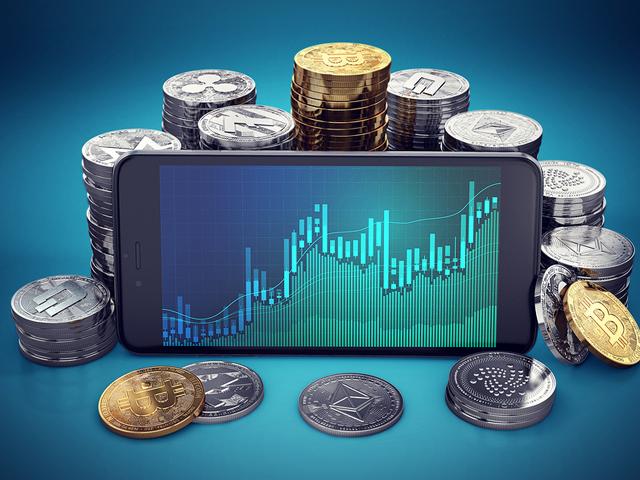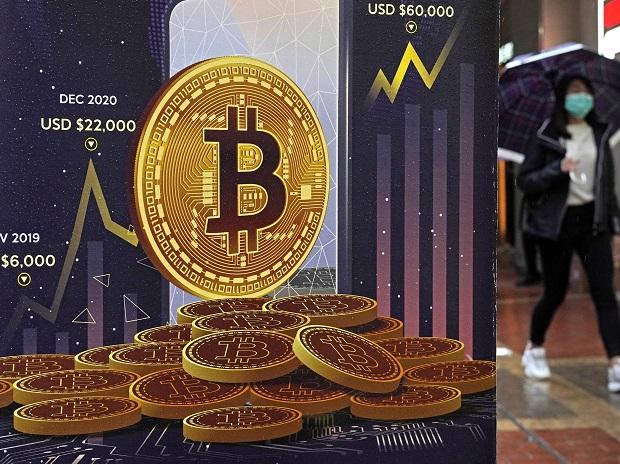In the evolving realm of digital currencies, cryptocurrency exchanges play a vital role, acting as digital marketplaces similar to traditional stock exchanges. These platforms, accessible through mobile apps or desktop functions, allow users to buy and sell assets like Bitcoin, Ethereum, and Tether, accompanied by a range of trading and investing tools. Here is a closer look at cryptocurrency exchanges, how to facilitate trade in the space, and India’s growing cryptocurrency market.
Before we learn about cryptocurrency, we should learn what fiat currency is.
What is fiat currency?
Fiat money is a type of currency that has no intrinsic value and is not backed by a physical commodity such as gold or silver. Its value is not backed by a physical asset, such as gold or silver, but the currency is accepted as a means of payment based on the belief in the stability and creditworthiness of the issuing government. Governments typically issue fiat currencies as their official medium of exchange. The Indian rupee (INR), US Dollar (USD), and Euro (EUR), among others are examples of fiat currency.
What is cryptocurrency?
Cryptocurrency is a digital currency. Its transactions are verified and maintained by a decentralised system using cryptography. Cryptography allows transactions in this digital currency to be anonymous, secure and trustless. Trustless means that the parties involved in cryptocurrency transactions do not need to know about each other to complete transactions. They also do not need to rely on third-party intermediaries.
How many cryptocurrencies are there?
Since Bitcoin’s creation in 2009, cryptocurrencies have grown exponentially. According to the United Kingdom’s Financial Conduct Authority, as of the beginning of 2023, there may be well over 20,000 cryptocurrencies.
According to a report by Forbes, the crypto market is expected to reach $4.94 billion by 2030 and some of the “best” or most popular cryptocurrencies to invest in November 2023 were: Bitcoin (BTC) (market cap: $721.2 billion), Ethereum (ETH) (market cap: $239.8 billion), Tether (USDT) (market cap: $88.1 billion), Binance Coin (BNB) (market cap: $38.8 billion), XRP (XRP) (market cap: $32.7 billion), and U S Dollar Coin (USDC) (market cap: $24.5 billion), among others.
What are cryptocurrency exchanges?
Cryptocurrency exchanges facilitate various trading options, including margin and lending trading, as well as futures and options trading. Earlier, obtaining crypto was limited to mining or online forums. However, now, numerous global exchanges operate with diverse security levels and fee structures.
How do cryptocurrency exchanges operate?
Whether centralised or decentralised, cryptocurrency exchanges serve as intermediaries connecting buyers and sellers in the digital realm. Engaging in crypto trading typically involves the following steps:
- Select a reputable exchange.
- Complete the registration and KYC process.
- Fund your account with fiat or digital currencies.
- Choose the cryptocurrency and desired amount for purchase.
- Initiate and complete the transaction.
- Verify the transaction’s success in your account.
- Advantages of cryptocurrency exchanges
Cryptocurrency exchanges make it convenient to acquire cryptocurrencies and provide legitimate trading opportunities. Moreover, some exchanges may even provide tax forms for simplified tax computation.
Challenges
The biggest challenge to cryptocurrency is its susceptibility to hacks and cyber theft. Users also have limited control over private keys in many exchanges.
Types of cryptocurrency exchanges
There are three types of cryptocurrency exchanges: Centralised, decentralised, and hybrid exchanges.
Centralised Exchanges (CEX): Centralised exchanges work similarly to conventional stock exchanges. They are regulated by a single authority that looks after every account and transaction. CEX allows for high liquidity and expedited transactions. Also, recovery of lost or stolen funds is possible with CEX. However, they can be more vulnerable to cyber-attacks and hacking. CEX, in the past, has also been accused of manipulating trading volumes. CEX systems are also designed to be simple and easy to navigate, as well as deposit and withdraw funds. This allows new and advanced users to navigate exchanges more effortlessly. Coinbase and Binance are both centralised exchanges. Most exchanges in India, including Mudrex,CoinDCX and CoinSwitch, are also centralised.
Decentralised Exchanges (DEX): Unlike centralised exchanges, DEX are completely autonomous and allow users complete control of their funds without any oversight. It is a peer-to-peer marketplace with direct transactions occurring between traders. They are more secure and private than CEX. DEXs like Uniswap and Sushiswap utilise decentralised finance (DeFi) tools, which allow a large range of financial services available to compatible crypto wallets. A potential drawback is that these exchanges have lower liquidity than centralised exchanges. Based out of Bangalore, Wikicious is one of India’s first decentralised cryptocurrency exchanges.
Hybrid Exchanges: Hybrid exchanges combine CEX and DEX. They offer the convenience of centralised exchanges while maintaining the privacy of decentralised exchanges. These are relatively new concepts that are still gaining traction among crypto investors.
Cryptocurrency exchange vs cryptocurrency wallet
Cryptocurrency wallets are used to send, receive, and store cryptocurrency, as opposed to exchanges, which primarily function to facilitate trades. A wallet can be used to store any cryptocurrency that can be held in a wallet, while exchanges can only hold or support certain currencies. The wallet can only store cryptocurrency, while exchanges may also trade in fiat currency for crypto. Moreover, a wallet can exist on exchanges both offline and online. Wallets also generally utilise private keys, whereas exchanges may or may not have private keys.
Cryptocurrency exchanges in India
Chainalysis’ 2023 crypto adoption index, released in September, ranked India as one of the top countries in grassroots cryptocurrency adoption. Between July 2022 and June 2023, India recorded approximately $250 billion in crypto value, compared to $1 trillion in crypto value in the United States during the same period. However, India’s tax for crypto gains is 30 per cent, and the country also deducts one per cent from the source. The report noted that this irregularity was causing Indian investors to seek international exchanges.
According to Forbes, there may be more than 600 exchanges worldwide. Although it is difficult to estimate the number of exchanges in India, especially with the ecosystem constantly evolving. CoinMarketCap, one the most referenced price-tracking website for crypto, tracks around 227 spot exchanges.
In India at least 20 exchanges are known. These include Mudrex, CoinDCX, CoinSwitch, WazirX, ZebPay, BuyUcoin, Bitbns, Unocoin, and PocketBits, among others.
Note:- (Not all news on the site expresses the point of view of the site, but we transmit this news automatically and translate it through programmatic technology on the site and not from a human editor. The content is auto-generated from a syndicated feed.))



